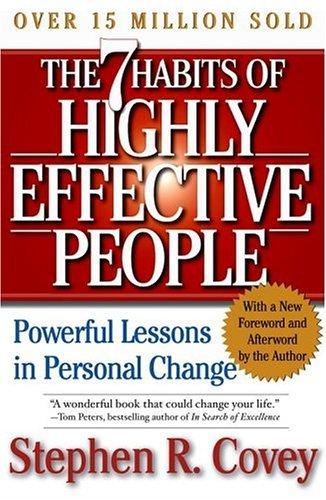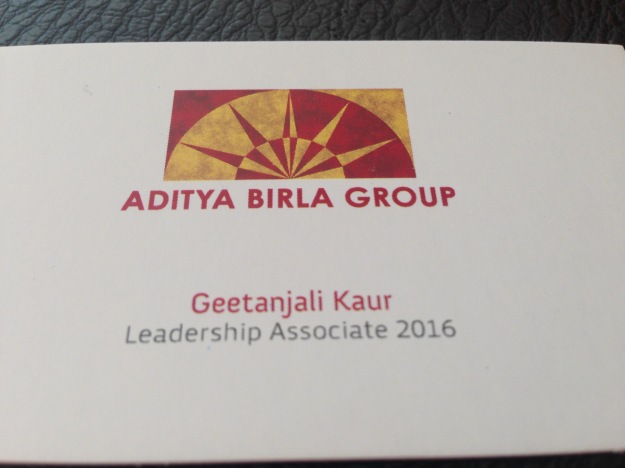Events & Promotions
|
|

GMAT Club Daily Prep
Thank you for using the timer - this advanced tool can estimate your performance and suggest more practice questions. We have subscribed you to Daily Prep Questions via email.
Customized
for You
Track
Your Progress
Practice
Pays
Not interested in getting valuable practice questions and articles delivered to your email? No problem, unsubscribe here.
- Nov 20
07:30 AM PST
-08:30 AM PST
Learn what truly sets the UC Riverside MBA apart and how it helps in your professional growth
Kudos
Bookmarks
| FROM Yudanashi - Current Student: Exams, or don’t sweat the small stuff |
|
So sorry for the hiatus, term was finished but now I’m back. To all those who are reading this while applying or trying to decide on accepting or not feel free to reach out. I’ve chatted with about a dozen admits or prospective students and I’m always happy to chat. – Now to the blog post itself! Oxford is richly filled with history, I have no reason to doubt its veracity except that legend grows here faster than moss. One such legend states that a student wore a suit of armor to an exam and was promptly escorted out of the exam schools with a distinction (highest grade) and a fine. A distinction because instead of wearing sub-fusc the typical Oxonian dress he had worn full-fusc the suit of armor; a fine because he failed to wear the traditional broadsword at his hip. We love our legends and I’d like to think that they are true but if not they at least can inspire future generations.  Two weeks ago we had our first set of Exams inside the exam school. We had two over 3 days and the amount of time put in at the library in preparation was absurd (for my tastes). The concern that people had with getting a distinction was so palatable that I had to bring a plate of cookies to get the taste out of my mouth! At Oxford individual class grades are not reported, in fact the only thing that is reported is a simple Fail / Pass / Distinction mark. Now I have parents who would love me just a smidgen more if I got a distinction, however I looked out at all the stress of the exam prep and realized that all I needed to do was simply pass the exams which wasn’t too difficult. Instead I spent the rest of my time trying to help de-stress the rest of our class. This is because one lesson I learned in the past year is to Not Sweat The Small Stuff (and it’s all small stuff). So I made cookies, provided some comic relief, and most importantly listened to the legend of the brave knight who pushed the boundaries of sub-fusc.  At this point in the story I have to tell you that after a decade of fencing I have a hate/hate relationship with trousers. My booty tends to push beyond the barriers of the physics of pants causing a rip in the fabric of space-time … or just my trousers. During Michaelmas term my tuxedo trousers ripped completely beyond repair … twice. Facing this lack of supportive sub-fusc; the legend of full-fusc; and the stress on our class for the final exams, I had an idea. While I didn’t have access to a full suit of armor (you were really hoping this was going there … me too!) I did have access to the rule-book for sub-fusc and an Amazon Prime account. So on the day of the exam I strode into the noble halls where generations of Oxonians have quivered in fear of poor performance in full Scottish kilt-fusc!  Yep, As a man with quite hairy legs I skipped in a skirt down the aisles of desks, passed the invigilators who keep a watchful eye on us to prevent cheating and took my seat. Everyone I talked to before and those who saw me walk by the invigilator (and her shocked reaction) relaxed and had a chuckle. You see a simple black kilt is now acceptable dress for sub-fusc and I had decided to not sweat the small stuff. Now my story will not go down in the annals of history as a legend but I was able to bring smiles to suffering students and prove that I wasn’t going to sweat the small stuff. As we start the next term in full-swing tomorrow I can’t help but keep that image in my mind and hope that whenever I come across something so inconsequential to the big picture that I can easily dismiss it with the mental image of that day. |
This Blog post was imported into the forum automatically. We hope you found it helpful. Please use the Kudos button if you did, or please PM/DM me if you found it disruptive and I will take care of it.
-BB
Kudos
Bookmarks
| FROM mybjourney - Current Student: HT: Week 1 and 2 |
|
Hilary Term has only started and we can feel the heat already. The two weeks have been packed with activities and submissions, giving a peek into what will follow for the next 10 weeks. Week 1 kick started with an introductory lecture on Entrepreneurship at Nelson Mandela Lecture Hall. Professor Hellman ‘s lectures and sessions delightful to attend and this one was a good antidote of sort for us still hungover from post exam holiday. We were introduced to frameworks and tools that assist in devising an effective business plan and inculcate an entrepreneurial mindset. As part of Hilary Term course we are required to do an Entrepreneurship Project (EP) in a group where we work on a business idea and prepare a complete business plan and market strategy. The plan will be pitched to a panel of venture capitalists and industry experts invited from outside the school towards the end of the term. My groupmates and I are excited about our idea and on our first round of presentations we received encouraging response from Oxford based startup incubator that offered to support us should we plan to pursue our idea later on! Many groups in the past have gone ahead with their EP and have started their own ventures, and while our primary objective from this project is to learn and assimilate the nuances of entrepreneurship, we are open to the idea of our project materialising to something more concrete in future. On Monday we also had an award ceremony to acknowledge and celebrate top GOTO projects. Global Opportunities and Threats: Oxford (GOTO) is an integrated module in our course where students work on complex global challenges being faced today and how we as business students can help address them. My group focused on the water draught problem in California and the impact it had on the almond farming in the region, which during the course of our project we unearthed was made far more complex due to various politico-economic factors and players in the entire ecosystem. I was delighted to find out that our project was recognised in the Top 10, for which we were awarded certificates of appreciation in the ceremony! Week 1 and 2 also ascertained why I am grateful for being here – for having the opportunity to meet and interact with wonderful people from various backgrounds. Last Wednesday I attended a session on Self-Care and Leadership by Dr. Kurt April, where he talked about managing stress and maintaining a healthy mental and physical lifestyle which one tends to sideline in one’s daily race to always being on the top of things. I find these sessions extremely helpful during the MBA when one is inundated with multiple tasks and it is not unusual to often feel stressed out and overwhelmed. I also went for two formal dinners in each week, one at my own college GTC where I invited a classmate whom I had not spoken with much last term. We both were planning since last term to hang out for and finally took to the formal dinner for spending some good time. The other was with a good friend from the batch at Keble College and a mathematics DPhil scholar, also a third generation Indian. Interesting conversations ensued on politics, religion, Indian diaspora and philosophy.  Keble College was established in 1870, originally constituted only for men until 1979 when it opened doors for women. The college’s distinctive red-bricked Neo-Gothic architecture is much talked about still, with the background story that its architect William Butterfield was heavily criticised for the presumably ‘ugly’ campus and non adherence to Oxford traditions. Hard to believe that a campus this magnificent was held controversial! Also a little note for the benefit of those interested- Keble dinner hall holds formal dinners all week long, while at my college GTC it is only twice a week which makes it comparatively harder to secure a reservation. Week 2 came full force with lectures including 2 new electives, assignments, presentations and job interviews packed throughout the schedule. The two electives I chose for this term are Corporate Valuation and Strategy & Innovation. Both the courses, albeit demanding, are challenging and have excellent faculty teaching us. S&I had us reading 100+ pages and submitting our first assignment even before the first class, which was on how technologies emerge and evolve with growing markets. I am excited about this course and hope to keep pace with the extensive reading involved. The reason for taking Corporate Valuation was to get a deeper dive into Finance that I am rather petrified of. I hope that by the end of this term, I will be at a pedestal where I don’t dork around whenever drops the F bombs in conversations. That’s all for now, I hope to write as and when I am able to steal some rare ‘me time’. Also I have been receiving a lot of requests from prospective applicants and new admits to write more on the admissions process, which I will cover in coming week. Off to a conference now at Pembroke College on Women in Boardroom and diversity at workplace! |
This Blog post was imported into the forum automatically. We hope you found it helpful. Please use the Kudos button if you did, or please PM/DM me if you found it disruptive and I will take care of it.
-BB
Kudos
Bookmarks
| FROM Yudanashi - Current Student: Rankings Rundown |
|
So sorry that I’ve been absent for the past few weeks – its been a busy term! – A few things have happened that I want to touch on that my readers may find relevant. The biggest one is that (as many of you know) the FT posted its MBA rankings and SBS fell a few slots. Now I could get into a long rant about the methodology; how 47% is based on Salary 3-years out while only 4% is based on “Aims Achieved.” Or how INSEAD helped to develop the FT rankings in the first place and they happen to be #1 this year. But that doesn’t help anyone. Instead I’ve taken the past few weeks to look at and think about the accuracy of the ranking, its relevance, and what changes can (and are) being made to improve the school itself (regardless of rankings) in the long-term. First of all, I think that the rankings are more-or-less accurate if you are an MBA recruiter looking to slot Management Consulting or Finance candidates. We should probably be in the late-teens, but there is a lot to be said about our 1-year program (which starts late) and its ability to prepare our students for in those fields in the short-time frame that we have. This is a problem which can be fixed and in looking at the program for the next 2-3 years it will be addressed very quickly with a handful of initiatives designed to give students who know they want to do Finance or Consulting the tools they need to network, recruit, interview, and get placed at top firms. We already started this shift with our year, the first to offer a summer internship for credit which allows partnerships with Deloitte and Accenture (and many finance roles I know little about) which can parlay into jobs following the MBA. Second, as you may have guessed from the first part, I think that rankings are largely irrelevant. Really only Finance and Consulting recruiters care about MBA rankings. Tech, the next biggest recruiter, doesn’t really and the one that does (Amazon) just hired like 10-15 people from SBS. For all fields, when you move to your second job (typically within 2-3 years post-MBA) the recruiter doesn’t care about your MBA ranking but the brand recognition of your institution. In our case Oxford University carries significant weight. In the long-run, it shouldn’t have to; SBS should be able to stand on its own, but it is an undeniable fact that the school and students enrolled or incoming should lean into. We are a part of the broader University of Oxford – an institution 220 years older than the founding of the Aztec empire, 350 years older than the Gutenberg printing press, and only 42 years younger than the Greek Orthodox church which split from the Roman Catholic church in 1054. We are backed by amazing colleges rich with history, scholarships, and alumni networks that other business schools can only dream about – incoming students lean into your college network. Third, other schools are focused on building huge alumni bases and top salaries in a play for the rankings and to make up for what Oxford has and they lack. They recruit students who are sponsored by their consulting firms in large numbers and often they lack the ethnic, cultural, or gender diversity let alone the diversity of industry we have at SBS. In my section we have your standard 3Ms of an MBA (Mormon/Military, Male, McKinsey) but we also have leaders from Teach For America (a huge feeder into Google and other large Tech firms), master’s students in Data & Analytics, Mechanical Engineers, high-fashion experts, social entrepreneurs who built schools in Africa, and quite possibly a handful future Heads of State. SBS chooses to (potentially) sacrifice the rankings in favor of a more diverse student population and I feel that the discussion, and our global network is far superior to other schools because of it. Lastly, we are in the process of rapidly changing things but that takes time. We are going to on-board students differently, we have tapped a new careers director (announcement forthcoming) and are now looking at a replacement for the MBA director role that was vacated this past week. We have quadrupled the number of marketing electives this year and are poised to propel a new generation of digital-first marketers into Brand Manager roles at major firms. We hired a new careers lead for Social Impact and are looking at hiring another for Technology as well. Each day as class Rep I sit in one meeting or another with faculty or administration; day-in day-out I see how the sausage is made. Has the school messed up in a few areas? Definitely although they may not admit it. Do the operations and communications need tuning and improvement? Absolutely, which is just one reason why Dina Dommett was hired 9 months ago and you can see the improvement she has been. Does the school know where their challenges lay and how they are going to address them? Mostly (and where they aren’t its more because of bandwidth, not institutional inertia). Is this a perfect school? No. Is HBS? Wharton? Kellogg? LBS? – In talking with my friends at those schools they have similar complaints across the board. Can we be a much better school? Yes, and I have complete confidence in the long-term value of an Oxford MBA from SBS. This degree is going to be immensely valuable – despite what the FT rankings might lead you to believe. As always if you want to talk about any of this reach out to me (a few incoming students already have) – email: blog@davidbbaker.com and I’ll get to you as soon as I finish a couple of assignments! |
This Blog post was imported into the forum automatically. We hope you found it helpful. Please use the Kudos button if you did, or please PM/DM me if you found it disruptive and I will take care of it.
-BB













